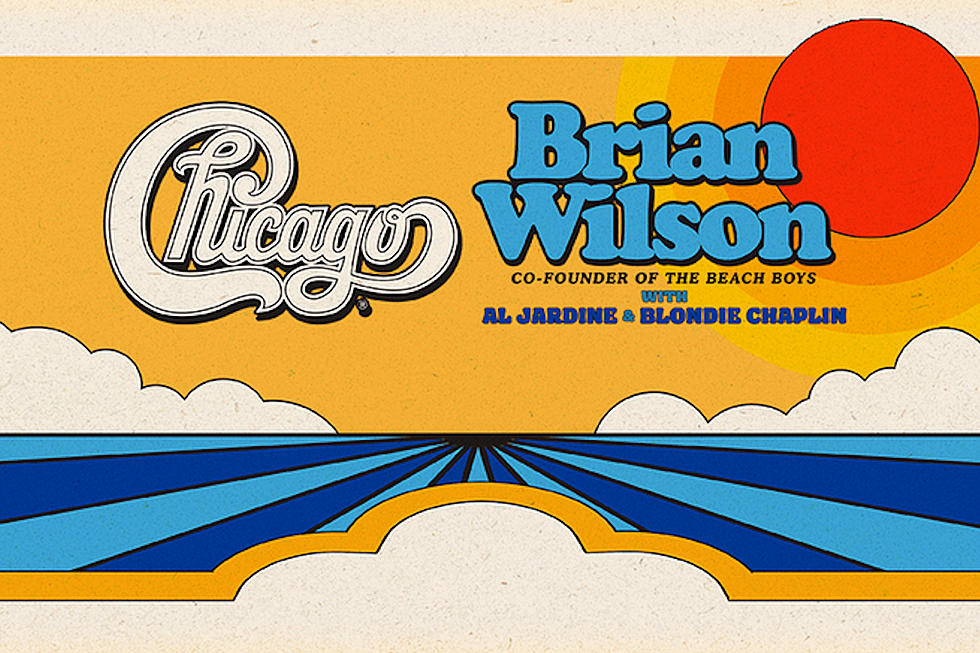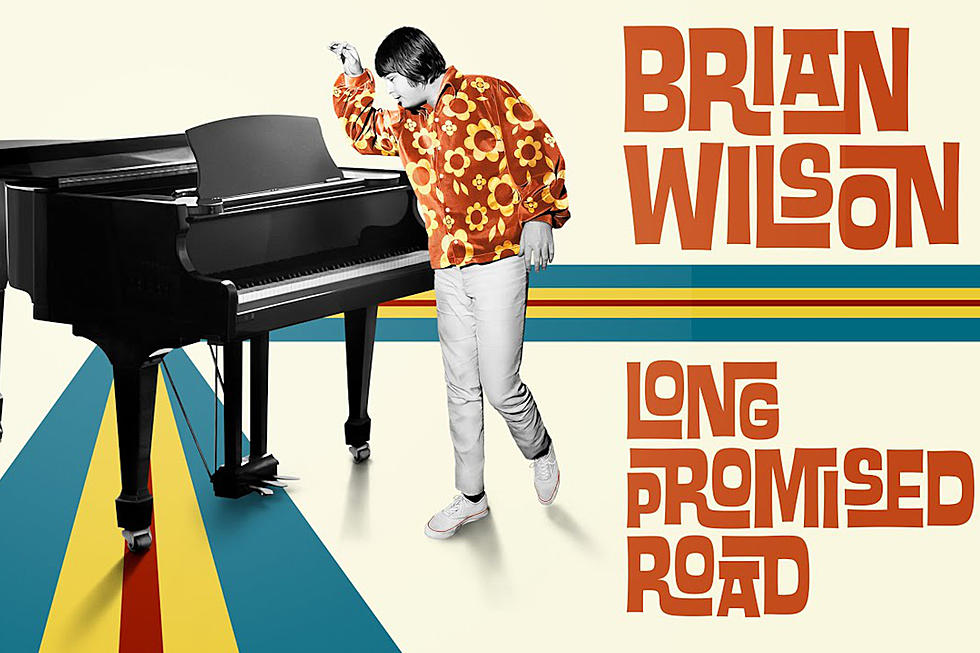
Brian Wilson and His Mad-Genius Influence on Pop Music
Listen to the radio in any decade from the '60s through today, and you're bound to hear Brian Wilson's influence on the songs that are playing. You may have to turn a little further to the left of the dial to notice that influence on much of today's music, but it's there, in some form or another.
And it's not just because Wilson was the mastermind behind one of the greatest albums ever made. Or because he was the mastermind behind one of the greatest albums that was almost never made. Or even because he somehow injected heart and soul and spirit into a genre mostly known for its lack of them. It's because Wilson did all of these things and more during a period when music was truly revolutionary and opening new doors to independence and creativity every day. And because he did it by battling demons that led to years of inactivity, seclusion and borderline madness.
Love & Mercy, a biopic about Wilson starring Paul Dano as young Brian and John Cusack as an older version, opens on June 5, and explores both his genius and troubled psyche. The movie also charts his road to recovery -- with the help of his wife and a doctor friend -- after years of hardship.
Watch the Trailer for 'Love & Mercy'
But without those demons fueling his work, would the Beach Boys' Pet Sounds sound as heartbreakingly beautiful? Would Smile represent a life's worth of tortured genius without all that weird stuff that rolls through it? Probably not.
And there lies Wilson's greatest triumph in a career that's now stretched past 50 years: His ideas, his determination, his pretensions, his unstoppable drive to get every single note right ,long after everybody else hears perfection. No other artist in the history of pop music has suffered for his or her art the way Wilson has. Not the Beatles. Not Madonna. Not Kanye.
Much of this was part of Wilson's DNA from the start. Without his fractured psyche goading him to do better (as well as his dad pushing him to the breaking point time and time again), Wilson never would have evolved beyond the rudimentary period pop of "Surfin' Safari" or the timely Chuck Berry rewrite "Surfin' U.S.A." Without Phil Spector's teenage symphonies pounding out of the radio and daring him to top them, Wilson never would have gotten around to "Don't Worry Baby," his first flash of real brilliance. Without Rubber Soul's revolutionary making and marketing of the LP as a viable format vs. the 45 single, as well as its extension of Spector's studio-as-playground ethos, Wilson never would have been shoved toward the gorgeous orchestral overload that surrounds Pet Sounds.
The seeds of Brian Wilson's legacy were planted on 1964's The Beach Boys Today! album, after a breakdown forced him to quit touring and focus his efforts instead on crafting layered pop landscapes like his idol Phil Spector was doing on hit records by the Crystals, Ronettes and others. Spector employed dozens of musicians, who played everything from cello and saxophone to harpsichord and castanets, on his songs. Soon, Wilson would be using dozens more, who brought banjo, ukulele, accordion and more to the sessions. All for two-and-a-half-minute pop songs, mixed in mono, blasting out of single-speaker AM radios.
It was only a matter of time before Wilson caught up with Spector (on classic pop chart-toppers like "Help Me, Rhonda" and "California Girls") and then surpassed him on 1966's Pet Sounds, a song cycle about heartbreak, growing up and, most of all, love. Paul McCartney heard it and wanted to make Sgt. Pepper's Lonely Hearts Club Band. Countless others have heard it over the years too (from David Bowie to Neutral Milk Hotel to Wilco) and tried to make their own versions of Wilson's pop symphonies.
Even Wilson was inspired and then stymied by the record. He immediately started working on his next song, "Good Vibrations," which was supposed to be a centerpiece of the Beach Boys' next album, Smile. But Wilson -- by then deep into drugs and nearing another breakdown -- couldn't get the songs right, or at least what he thought was right. He recorded and recorded, tore apart and threw away, wrote more songs, recorded them and then rebuilt. And then he just gave up.
For years, Smile was one of popular music's most in-demand and fabled lost albums. Sketchy and half-finished bootlegs were passed around, some songs found their way here and there onto later Beach Boys LPs and Wilson's legend grew as he withdrew from the world.
Brian Wilson eventually revisited Smile in 2004 as a solo record, with a new band and new recordings. Later, 2011's The Smile Sessions reconstructed the original 1967 tapes to the best of Wilson's memory (which was battered and scarred by this point), and it represents everything post-Pet Sounds Wilson was about: It's weird, it's wonderful, it's messy, it's a masterpiece and it's obviously the work of a man barely holding on to his sanity.
Over the years, artists have picked up on Wilson's mad-genius legend. But he's much more than that. Even in the '70s and '80s, two decades in which he pretty much disappeared from public except for a handful of Beach Boys appearances, he continued making music, much of it still unheard today. The unreleased "Bedroom Tapes" purportedly chronicle an artist sorting through his damaged mind during a period that was mostly filled with massive amounts of coke and LSD. And the songs that did make it to records back then were living in a shadow of a fading legend.
It took a while for Wilson to dig himself out of his personal mess. (Love & Mercy, the upcoming biopic, goes into detail about the effect his wife and doctor had on his life.) Since his comeback self-titled solo album in 1988, Wilson has released a dozen LPs, including one with the Beach Boys to celebrate their 50th anniversary in 2012.
Some of them are good, some of them aren't. But they all reveal the same thing: Wilson is just as influenced by his past as everyone else is. There's no escaping it. And while he tries to play down his legacy, you know he knows just how important and influential he is. He wouldn't have pushed himself toward excellence if he didn't. It's all there -- in the songs, in the sounds and in some of the greatest records made in the past 50 years -- as proof. And it will continue to be there as long as "Don't Worry Baby," Pet Sounds, Smile and other classic records are around to remind us.
25 Interesting Rock Movie Facts
More From Ultimate Classic Rock









